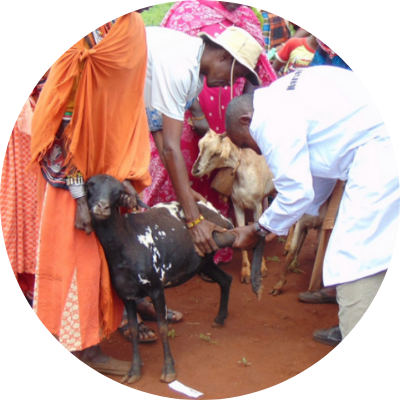What is Needed
Kenya needs more skilled veterinarians and wildlife advocates. Currently, there are only 14 wildlife veterinarians at the Kenya Wildlife Service supporting the entire country.
Kenya needs more skilled veterinarians and wildlife advocates. Currently, there are only 14 wildlife veterinarians at the Kenya Wildlife Service supporting the entire country.

Lack of access to veterinary care negatively impacts both animals and people. Sick livestock can transfer disease, like Brucellosis, to other livestock, wildlife and humans who come in contact with them.
Vets International (VI) sees a future where vulnerable and endangered animal species can be protected, while communities thrive through compassionate veterinary care.
In partnership with the Kenya Wildlife Service, VI is deploying a mobile veterinary clinic that will provide access for veterinarians to care for wildlife, livestock, and companion animals. In addition, VI is working to increase the number of skilled veterinarians and wildlife advocates in Kenya through a multi-stakeholder partnership with the Kenya Wildlife Service, the University of Nairobi Faculty of Veterinary Sciences, Egerton University, the Laikipia County Government and Loisaba Conservancy. Our program, targeting final-year veterinary students, will help ensure that graduates have a good understanding of One Health. Additionally, it provides essential training for those aspiring to work in wildlife medicine.
Teaching students to handle the animals with compassion and care will translate to the community. When animals go from being viewed as an object to being seen as a living, sentient being, they are safer for humans and humans are rewarded with a new sense of affinity and connection.
We have laid a strong foundation but there is a lot more work to do to provide the University of Nairobi with equipment to expose students to modern diagnostic, enhance and support multiple Kenyan conservancies wildlife hospitals and rescue centers, fund a mobile veterinary clinic in Kenya for access to remote communities to rescue injured wildlife, provide basic medical aid, surgical services, disease prevention, and field training.
You can build on the progress that has been made with a donation that will help to continue and grow this important work.